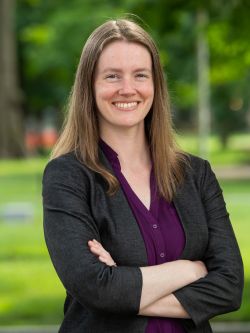Event Date/Time
Location
room 222
Series/Event Type
Nature creates materials with remarkable properties by controlling hierarchical assembly from the molecular through the macroscopic length scales. This talk describes how we combine molecular design with directed assembly via extrusion-based 3D printing to programmably define the structure and function of polymer-based materials across length scales. First, I will describe how we leverage bioinspired sequence-defined polypeptoids to systematically investigate the impact of helical secondary structures on block copolymer self-assembly. We find that the molecular helix is stiffer but more compact than the analogous coil, and that the stiffness of the molecular helix dominates space-filling effects in controlling self-assembly. Next, I will introduce the design of liquid crystal elastomers (LCEs) that contain light-activated dynamic bonds. Using extrusion-based 3D printing, the molecular alignment of bulk LCEs can be programmed to encode desired shape transformations when thermally cycled above and below their nematic-to-isotropic phase transition temperatures. These functional elastomers can be reprogrammed on demand via exposure to UV light due to the coupling of the functional and dynamic components of the elastomer network. Finally, I will highlight a path towards integrated polymer architectures with stimuli-responsive structure and function via multimaterial 3D printing.
Speaker Bio
